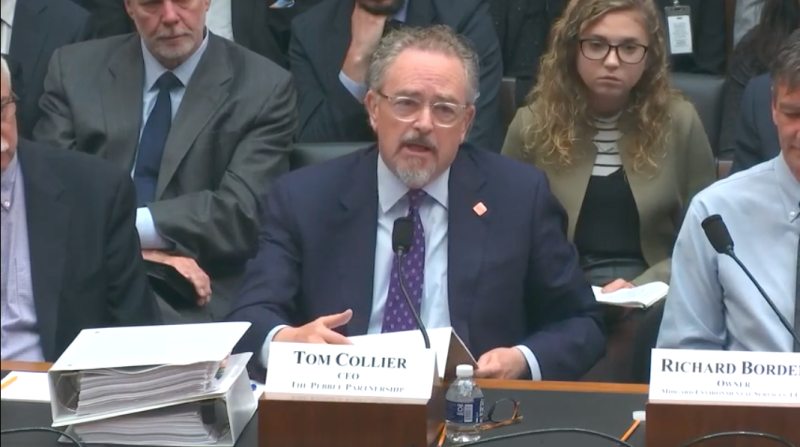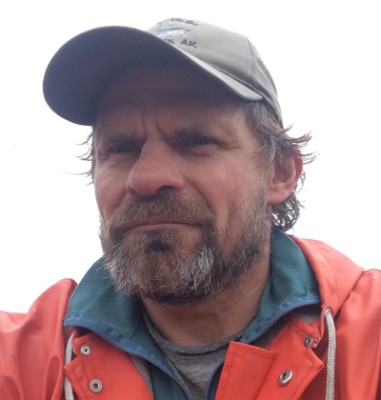"Have you submitted a document on this much smaller mine, showing it's financially viable to the Corps of Engineers that is a certifiable, real analysis?" Rep. Peter DeFazio asked Pebble Corp CEO Tom Collier at a House subcommittee hearing in October 2019.
"No," Collier replied.

That hearing was seven months, almost to the day, before the U.S. Army Corps confirmed in a press call that the Pebble Limited Partnership had decided to pursue an alternative plan over its prior preferred — and smaller — plan.
The Army Corps said on Friday, May 22, that because the alternative, which includes a natural gas pipeline, was included in the 1,500 page draft EIS, it is covered under public comment.
The concern, fishery advocates say, is that the public comments on the Draft Environmental Impact Study focus on the corporation's original preferred plan, not on the alternatives.
“This is about Pebble pushing for a bigger mine under the guise of the smaller plan; this is a con game, a giant bait and switch, and the Army Corps is in on the scam: analyze for one option and allow for another,” said Rachel James, SalmonState’s Bristol Bay campaign coordinator. "This is government in service to a foreign mining company and a betrayal of those who depend on Bristol Bay."
The lack of adequate science and data in the study should be enough to derail its approval. But the Army Corps has shown no signs of yielding to widespread calls for a reassessment with a stronger scientific foundation.

Dr. Daniel Schindler and a crew of students at the University of Washington’s School of Aquatic and Fishery Sciences spent weeks reviewing the assessment with a critical eye on the science. The results, they said, were appalling.
“The reality is that no one is paid to sit around and critique these things. If (a scientist) writes a paper that we want to publish, it goes out to peer review, and unless you can get a handful of scientists to say that it’s legitimate, it never gets published.
"In the case of an environmental impact statement, there’s no formal peer review,” said Schindler, who spends his summers researching in Bristol Bay as part of the university's Alaska Salmon Program.
A recent SalmonState survey of 800 participating fishermen revealed that 58 percent are worried about bad policy decisions being implemented while they are distracted by health and safety concerns of operating their essential businesses and services in the midst of a pandemic.
Meanwhile, the Igiugig Village Council released a statement on Monday, May 25, saying it would not cooperate with the Pebble Limited Partnership's plan. The council controls the Diamond Point rock quarry, which it says is critical to the new alternative plan.
"PLP’s plan for Diamond Point presented in the EIS does not fit with our plans for Diamond Point, and should not be considered an acceptable alternative," the council said in a statement. "The Corps continues to disregard our concerns, has failed in their trust responsibility to adequately consult with our tribe, and has not completed thorough analyses of the impacts this project will have on our people. IVC will continue to put the well-being of our people and our future generations first, as we have since time immemorial.”
In December 2017, the group Save Bristol Bay published the following:
"There is no such thing as 'small' Pebble mine.
"To Alaskan audiences, Pebble says they have listened to our concerns and are now proposing a 'smaller mine' with less impact to the fishery. Don’t be fooled by their lies. As they promote their new 'small mine' they are simultaneously attempting to attract investors."







